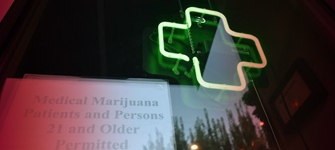For anyone who’s ever lived in the South, or know people that do, the thought of legalizing pot is pretty far fetched. Law enforcement in states like Texas, South Carolina and Louisiana go strictly by the book, especially when dealing with marijuana offenders.
There is still hope for Southerners, however. Georgia has recently legalized medical marijuana, South Carolina is close behind and Louisiana is in serious consideration.
But to what extent is this really making a difference?
The major problem in the advancement of complete legalization is in the legality details of state’s bills. Many of these states are saying, “alright, you guys win. We will make weed legal to HAVE in our state, but you can’t get it here because we don’t grow it.”
Supporters who are trying to pass bills in which marijuana could be legally grown in their home state are being shot down.
South Carolina
South Carolina is making some progress. A few proposals have been approved that would advance legalization bills for medical cannabis. The Davis-Hutto and H-4037 bill both rally for medical legalization as well as the ability to locally grow cannabis within South Carolina.
Though the proposals have passed through a Senate Medical Affairs subcommittee, they have many more obstacles to overcome before becoming law. Many members of the community are steadfast in their belief that marijuana should not be grown, sold or distributed in their state, members such as, wait for it… law enforcement.
The major focus of their concern centers toward the children of the community. If growing operations were allowed within the state, adolescents would have more of an available access than if it was not grown within the state.
Senator Tom Davis, the bill’s main sponsor, waves this way, saying the only thing limiting high school students to obtaining “drugs” is their amount of lunch money. “Any system that we come up with is going to be abused,” Davis said about the law enforcement’s concern.
Georgia
In the state of Georgia, officials have already legalized medical marijuana, but not to a substantial extent. House Bill 1 was taken into effect late December of last year, making medical cannabis legal up to 20 ounces of cannabis oil, if a physician signs off.
Though the state now makes it legal to possess cannabis oil, families must continue to travel out of state because marijuana cannot be legally cultivated in Georgia.
Traveling to Colorado is the only option for patients who need cannabis oil treatment, which puts them at risk of arrest or jail time through federal restrictions.
Some families are willing to take that risk, like Janea Cox whose daughter Haleigh suffers from seizures that only respond positively to cannabis oil.
“If I had to break federal law, I’ll gladly do it,” Cox said. “If they want to come get us, then come get us.”
Louisiana
Louisiana is following close behind by seriously considering the possibility of legalization in order to pay off their debt. With a whopping $850 million dollars in debt, the state is becoming desperate for a steady income.
Kevin Caldwell, executive director of Commonsense NOLA, agrees there needs to be some changes. “All these draconian measures we put on people and we’re still one of the most violent states in the country,” Caldwell said.
“Obviously the way we’re doing things doesn’t work. Obviously its time to change our paradigm.”
As one of the strictest states in terms of marijuana criminal offenses, many law enforcement members are absolutely opposed to legalization. One officer, Sherriff Newell, went berserk in a press video. “We’re thinking about decriminalizing marijuana and we think all of this shit is gonna go away when we do so? HELLO!” Sherriff Normand yelled. “The havoc that it will wreak on our streets will be insurmountable.”
Sherriff Normand’s episode resonates deeply with high incarcerations due to marijuana drug offenses. According to a report from the American Civil Liberties Union, a high number of inmates serving life in prison is the effect of non-criminal offenses, including minor marijuana offenses. Ironically, however, cracking down on cannabis offenses is actually hurting Louisiana financially, costing the state a little over $46M per year.
Though it seems pretty pointless, it’s important to see that states are taking the necessary steps forward. It may be a very long time until the South accepts cannabis for what it is, a natural, healing plant that helps save lives.











